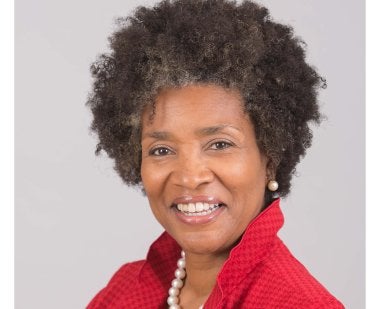

Institutional Change Following Mizzou Racial Crisis Improving, But Still Work To Do, Study With COE Coauthor Finds

College Park, MD — The University of Missouri has made moderate progress in improving diversity, equity, and inclusion efforts through a variety of new programs, communication and community building efforts, according to a new report by the American Council on Education (ACE) related to the university’s 2015-2016 racial crisis. Although the university has made steps forward, it is critical to continue to address trauma related to the crisis as well as the fragmented perspectives and tensions that remain pervasive on campus, the report details.
The new report, “Leading After a Racial Crisis: Weaving a Campus Tapestry of Diversity and Inclusion,” is the culmination of the multi-year case study of the University of Missouri’s work toward increasing diversity, equity, and inclusion practices since the 2015-2106 racial crisis, which resulted from numerous racial incidents on campus and in the broader local and regional community that university leadership failed to address in a timely and thoughtful way. The project, in which researchers conducted case studies on the campus in 2017 and 2019, is a collaboration between the University of Missouri and ACE, and includes COE Professor Sharon Fries-Britt as a co-lead author on both reports.
“The major findings this time around is that Mizzou had made progress,” says Dr. Fries-Britt, a Distinguished Scholar-Teacher at the University of Maryland.
Overall, the 2020 ACE report, informed by documents and reports, field expertise, focus-groups, and interviews with 64 university leaders and stakeholders, finds that the University of Missouri has made moderate progress in elevating diversity, equity, and inclusion practices within the university system. Specifically, the university is at “moderate capacity,” a measure derived from the team’s 2018 report, assesses how well universities meet five key elements, including strategic planning, leadership expertise, building trust, investment in continual learning, and maintaining evaluation and assessment practices, with the measure providing a ranking from low to high.
However, the campus community appears split on how much progress the university has achieved.
“There were different views on how far the university had gone,” Dr. Fries-Britt says.
For instance, campus opinion on how to remember the racial crisis ranged from moving on so as not to the immortalize the crisis on campus to marking it as a milestone in the fight against institutional racism.
“Because of the fractured perspectives and the longstanding emotions what we also found is that they weren’t any longer in a trauma situation per se, but there were still these emotions that people had and they were shaped by the fragmented views and tensions,” Dr. Fries-Britt says.
The differing views create the need for “weaver-leaders,” the report posits. As adept communicators, weaver-leaders engage all segments of the campus community and forward dialogue through shared expectations of both positive and negative experiences.
“A weaver-leader recognizes different perspectives and helps people makes sense out of those perspectives and build opportunities," Dr. Fries-Britt says. "Weaver-leader is a stance, an idea of how to lead, how to work with people, engage with people, and connect the differing perspectives into a vision of what we’re becoming.”
The report identifies successful weaver-leaders as being able to engage all segments of the campus community in a set of shared expectations reflecting both positive and negative experiences. At the University of Missouri, the researchers observed several practices contributing to this end, including the Inclusive Excellence Framework, which guides policies, practices, and structures at the university.
Additionally, the University of Missouri System has worked to build relationships with leaders and relevant stakeholders, and hosts the Inclusion and Belonging Series, a program focused on deepening personal, professional, and community connections. The university also supports the $60 million Promise and Opportunity Scholarship programs geared toward underrepresented minority students.
But ultimately, there’s still work to be done at the University of Missouri—and higher education in general—to reach diversity, equity, and inclusion functioning at high capacity.
“High capacity is the dismantling of systemic and racist oppressive practices. And that’s what you don’t see a lot of in higher education. It’s actually what you don’t see a lot of in our society,” Dr. Fries-Britt says.
The authors, along with the University of Missouri, hope that the report provides guidance on leading during and after a crisis, particularly related to racial injustice, as well as building an inclusive campus culture.
Dr. Fries-Britt is a professor and Distinguished Scholar-Teacher in the Department of Counseling, Higher Education, and Special Education at the University of Maryland College of Education.



